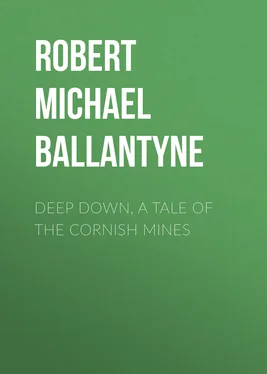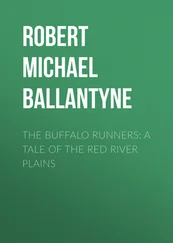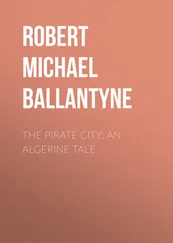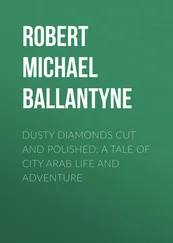Robert Michael Ballantyne - Deep Down, a Tale of the Cornish Mines
Здесь есть возможность читать онлайн «Robert Michael Ballantyne - Deep Down, a Tale of the Cornish Mines» — ознакомительный отрывок электронной книги совершенно бесплатно, а после прочтения отрывка купить полную версию. В некоторых случаях можно слушать аудио, скачать через торрент в формате fb2 и присутствует краткое содержание. Жанр: foreign_children, literature_19, foreign_antique, foreign_prose, на английском языке. Описание произведения, (предисловие) а так же отзывы посетителей доступны на портале библиотеки ЛибКат.
- Название:Deep Down, a Tale of the Cornish Mines
- Автор:
- Жанр:
- Год:неизвестен
- ISBN:нет данных
- Рейтинг книги:4 / 5. Голосов: 1
-
Избранное:Добавить в избранное
- Отзывы:
-
Ваша оценка:
- 80
- 1
- 2
- 3
- 4
- 5
Deep Down, a Tale of the Cornish Mines: краткое содержание, описание и аннотация
Предлагаем к чтению аннотацию, описание, краткое содержание или предисловие (зависит от того, что написал сам автор книги «Deep Down, a Tale of the Cornish Mines»). Если вы не нашли необходимую информацию о книге — напишите в комментариях, мы постараемся отыскать её.
Deep Down, a Tale of the Cornish Mines — читать онлайн ознакомительный отрывок
Ниже представлен текст книги, разбитый по страницам. Система сохранения места последней прочитанной страницы, позволяет с удобством читать онлайн бесплатно книгу «Deep Down, a Tale of the Cornish Mines», без необходимости каждый раз заново искать на чём Вы остановились. Поставьте закладку, и сможете в любой момент перейти на страницу, на которой закончили чтение.
Интервал:
Закладка:
R. M. Ballantyne
Deep Down, a Tale of the Cornish Mines
Chapter One.
Begins the Story with a Peculiar Meeting
Necessity is the mother of invention. This is undoubtedly true, but it is equally true that invention is not the only member of necessity’s large family. Change of scene and circumstance are also among her children. It was necessity that gave birth to the resolve to travel to the end of the earth—of English earth at all events—in search of fortune, which swelled the bosom of yonder tall, well-favoured youth, who, seated uncomfortably on the top of that clumsy public conveyance, drives up Market-Jew Street in the ancient town of Penzance. Yes, necessity—stern necessity, as she is sometimes called—drove that youth into Cornwall, and thus was the originating cause of that wonderful series of events which ultimately led to his attaining—but hold! Let us begin at the beginning.
It was a beautiful morning in June, in that period of the world’s history which is ambiguously styled “Once-upon-a-time,” when the “Kittereen”—the clumsy vehicle above referred to—rumbled up to the Star Inn and stopped there. The tall, well-favoured youth leapt at once to the ground, and entered the inn with the air of a man who owned at least the half of the county, although his much-worn grey shooting costume and single unpretentious portmanteau did not indicate either unusual wealth or exalted station.
In an off-hand hearty way, he announced to landlord, waiters, chambermaids, and hangers-on, to all, indeed, who might choose to listen, that the weather was glorious, that coaches of all kinds, especially Kittereens, were detestable machines of torture, and that he meant to perform the remainder of his journey on foot.
He inquired the way to the town of St. Just, ordered his luggage to be forwarded by coach or cart, and, with nothing but a stout oaken cudgel to encumber him, set out on his walk of about seven miles, with the determination of compensating himself for previous hours of forced inaction and constraint by ignoring roads and crossing the country like an Irish fox-hunter.
Acting on the presumptuous belief that he could find his way to any part of the world with the smallest amount of direction, he naturally missed the right road at the outset, and instead of taking the road to St. Just, pursued that which leads to the Land’s End.
The youth, as we have observed, was well-favoured. Tall, broad-shouldered, deep-chested, and athletic, with an active step, erect gait, and clear laughing eye, he was one whom a recruiting-sergeant in the Guards would have looked upon with a covetous sigh. Smooth fair cheeks and chin told that boyhood was scarce out of sight behind, and an undeniable some thing on the upper lip declared that manhood was not far in advance.
Like most people in what may be termed an uncertain stage of existence, our hero exhibited a variety of apparent contradictions. His great size and muscular strength and deep bass voice were those of a man, while the smooth skin, the soft curling hair, and the rollicking gladsome look were all indicative of the boy. His countenance, too, might have perplexed a fortune-teller. Sometimes it was grave almost to sternness, at other times it sparkled with delight, exhibiting now an expression that would have befitted a sage on whose decisions hung the fate of kingdoms, and anon displaying a dash of mischief worthy of the wildest boy in a village school.
Some of the youth’s varied, not to say extravagant, actions and expressions, were perhaps due to the exhilarating brilliancy of the morning, or to the appearance of those splendid castles which his mind was actively engaged in building in the air.
The country through which he travelled was at first varied with trees and bushes clothed in rich foliage; but soon its aspect changed, and ere long he pursued a path which led over a wide extent of wild moorland covered with purple heath and gorse in golden-yellow bloom. The ground, too, became so rough that the youth was fain to confine himself to the highroad; but being of an explorative disposition, he quickly diverged into the lanes, which in that part of Cornwall were, and still are, sufficiently serpentine and intricate to mislead a more experienced traveller. It soon began to dawn upon the youth’s mind that he was wandering in a wrong direction, and when he suddenly discovered a solitary cottage on the right hand, which he had previously observed on the left, he made up his mind to sacrifice his independence and condescend to ask for guidance.
Lightly leaping a wall with this intent, he crossed two fields, and stooped as he looked in at the low doorway of the cottage, from the interior of which there issued the loud cries of a child either in great pain or passion.
A sturdy little boy seated on a stool, and roaring like a young bull, while an elderly woman tried to comfort him, was the sight which met his gaze.
“Can you show me the road to St. Just?” inquired our adventurer.
“St. Just, sur?” said the woman, stepping out in front of the door, “why, you’re on the way to St. Buryan, sure. Ef you do keep on the right of the hill over theere, you’ll see the St. Just road.”
A yell of unparalleled ferocity issued at this moment from the cottage, and it was found that the noisy urchin within, overcome by curiosity, had risen to ascertain who the stranger outside could be, and had been arrested by a pang of agony.
“Aw dear, aw dear, my poor booy,” exclaimed the woman, endeavouring gently to press the boy down again on the stool, amid furious roaring.
“What’s wrong with him?” asked our traveller, entering the apartment.
“He’s tumbled off the wall, dear booy, an’ semen to me he’s scat un shoulder very bad.”
“Let me have a look at him,” said the youth, sitting down on the edge of a bed which stood at one end of the room, and drawing the child between his knees. “Come, little man, don’t shout so loud; I’ll put it all right for you. Let me feel your shoulder.”
To judge from the immediate result, the young man seemed to put it all wrong instead of “all right,” for his somewhat rough manipulation of the boy’s shoulder produced such a torrent of screams that the pitying woman had much ado to restrain herself from rushing to the rescue.
“Ah!” exclaimed the youth in grey, releasing his victim; “I thought so; he has broken his collar-bone, my good woman; not a serious matter, by any means, but it will worry him for some time to come. Have you got anything to make a bandage of?”
“Sur?” said the woman.
“Have you a bit of rag—an old shirt or apron?—anything will do.”
The woman promptly produced a cotton shirt, which the youth tore up into long strips. Making a pad of one of these, he placed it under the boy’s arm-pit despite of sobs and resistance. This pad acted as a fulcrum on which the arm rested as a lever. Pressing the elbow close to the boy’s side he thus forced the shoulder outwards, and, with his left hand, set the bone with its two broken ends together. To secure it in this position he bound the arm pretty firmly to the boy’s body, so that he could not move a muscle of the left arm or shoulder.
“There,” said the youth, assisting his patient to put on his shirt, “that will keep all straight. You must not on any account remove the bandage for some weeks.”
“How long, sur?” exclaimed the woman in surprise.
“For some weeks; but that will depend on how the little fellow gets on. He may go about and use his right arm as he pleases, but no more climbing on walls for some time to come. Do you hear, little man?”
The urchin, whose pain was somewhat relieved, and who had moderated down to an occasional deep sob, said “Iss.”
Читать дальшеИнтервал:
Закладка:
Похожие книги на «Deep Down, a Tale of the Cornish Mines»
Представляем Вашему вниманию похожие книги на «Deep Down, a Tale of the Cornish Mines» списком для выбора. Мы отобрали схожую по названию и смыслу литературу в надежде предоставить читателям больше вариантов отыскать новые, интересные, ещё непрочитанные произведения.
Обсуждение, отзывы о книге «Deep Down, a Tale of the Cornish Mines» и просто собственные мнения читателей. Оставьте ваши комментарии, напишите, что Вы думаете о произведении, его смысле или главных героях. Укажите что конкретно понравилось, а что нет, и почему Вы так считаете.












